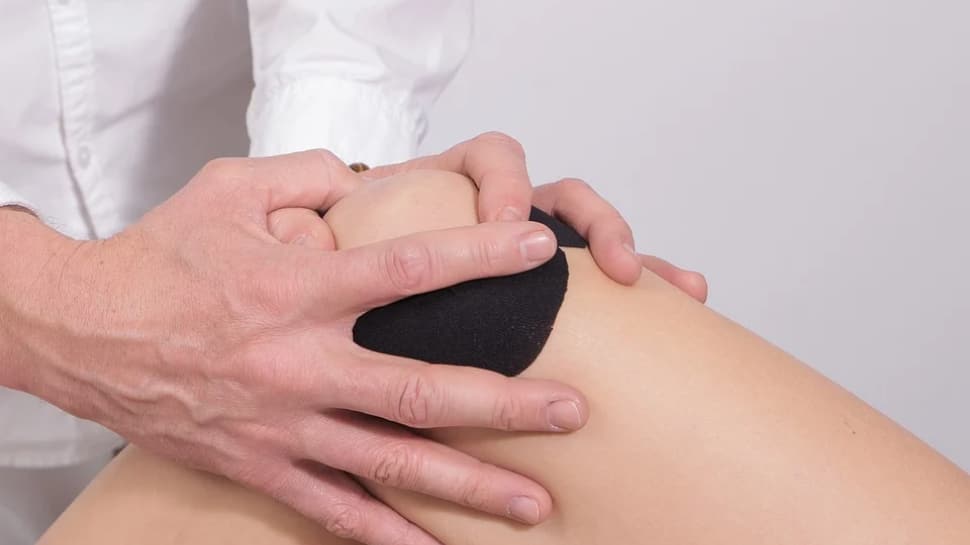Exclusive: Know ABC of arthritis and when to undergo knee-replacement surgery
Arthritis majorly affects the aging population as the knees get worn out due to the continuous movement of the bones. A person with the average stride living until 80 years will walk a distance of around 110,000 miles, which is the equivalent of walking about 5 times around the Earth, right on the equator, so over a period of time developing knee ailments is not uncommon.
- The most common cause of chronic knee pain and disability is arthritis
- In determining whether a knee replacement is suitable for someone, an orthopedic surgeon assesses the knee's range of motion, stability, and you may require an x-ray
Trending Photos
) Pic Courtesy: Pixabay/ Representational Image
Pic Courtesy: Pixabay/ Representational Image New Delhi: Arthritis affects more than 180 million people in India and around 14 percent of the Indians every year consult a doctor for the disease, according to an analysis done by SRL Diagnostics in 2014.
Arthritis majorly affects the aging population as the knees get worn out due to the continuous movement of the bones. A person with the average stride living until 80 years will walk a distance of around 110,000 miles, which is the equivalent of walking about 5 times around the Earth, right on the equator, so over a period of time developing knee ailments is not uncommon.
The most common cause of chronic knee pain and disability is arthritis.
“Although there are many types of arthritis, most knee pain is caused by just three types: osteoarthritis, rheumatoid arthritis, and post-traumatic arthritis,” shares Dr Narayan Hulse, Director - Department of Orthopedics, Bone and Joint Surgery, Fortis Hospitals, Bannerghatta Road, Bengaluru.
Explaining these 3 most common arthritis types, he shares:
Osteoarthritis
Osteoarthritis is a situation where the protective cartilage that cushions the ends of the bones wears down over time. This is seen in millions of people worldwide. The medical treatment that many orthopedics suggest is to go for knee replacement surgery. Of course, this comes as the last resort solution after regular physiotherapy and medications.
Rheumatoid arthritis
This is a disease in which the synovial membrane that surrounds the joint becomes inflamed and thickened. This chronic inflammation can damage the cartilage and eventually cause cartilage loss, pain, and stiffness. Rheumatoid arthritis is the most common form of a group of disorders termed "inflammatory arthritis." This disease can affect even younger individuals and involve many joints like hands and feet. It is a type of autoimmune disease where misdirected immune cells damage our organs, for example, joints.
Post-traumatic arthritis
A severe knee injury causes this. Fractures of the bones surrounding the knee or tears of the knee ligaments may damage the articular cartilage over time, causing knee pain and limiting knee function.
Once I discovered the knee problem, what do I do next?
“In determining whether a knee replacement is suitable for someone, an orthopedic surgeon assesses the knee's range of motion, stability, and you may require an x-ray,” says Dr Hulse.
“However, the decision for a knee replacement depends on your age, how painful your knee is, limitations of your daily activities due to knee pain and your willingness to undergo surgery,” he further adds.

What are some of the reasons recommended for surgery?
· Severe knee pain or stiffness that limits everyday activities, including walking, climbing stairs, and getting in and out of chairs
· Moderate or severe knee pain while resting, either day or night
· Chronic knee inflammation and swelling that does not improve with rest or medications
· Knee deformity — a bowing in or out of the knee
· Failure to substantially improve with other treatments such as anti-inflammatory medications, cortisone injections, lubricating injections, physical therapy, or other surgeries.
When these symptoms start interfering in your daily life, a knee replacement may be recommended. Your general health and fitness to undergo anesthesia will be assessed with medical tests and images before surgery.
In recent times, knee replacement has been commonly observed in our society. Other than the elderly increasing number of young individuals are also opting for knee replacements. The advanced technologies in medical sciences have paved the way to a better quality of life for these individuals lasting about two decades on average.
Stay informed on all the latest news, real-time breaking news updates, and follow all the important headlines in india news and world News on Zee News.
Live Tv







)
)
)
)
)
)
)
)
)
)
